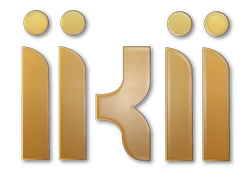Research Article
Effects of Virtual Reality on Training in Food Preparation Curriculum for Vocational High School Students with Autism Spectrum Disorder
More Detail
1 Graduate Institute of Rehabilitation Counseling, Department of Special Education, National Taiwan Normal University2 Graduate Institute of Rehabilitation Counseling, National Taiwan Normal University3 Department of Industrial Education, Institute for Research Excellence in Learning Sciences, National Taiwan Normal University* Corresponding Author
Educational Innovations and Emerging Technologies, 2(1), March 2022, 17-32, https://doi.org/10.35745/eiet2022v02.01.0002
Published: 30 March 2022
OPEN ACCESS 227 Views 133 Downloads
ABSTRACT
The improvement of food preparation skills is beneficial for students with autism spectrum disorder (ASD) to strengthen their employment skills and improve their independent living ability. To enhance the skill development of ASD in food preparation with safe approaches, virtual reality (VR) was used in this study. A single-subject research method and multiple probes across the subject’s design were used. The participants were three 10th-grade students with ASD in a vocational high school. The training program of a food preparation curriculum was supplemented with sixty-minute VR sessions over 2 weeks, five times per week to collect data on the average procedural accuracy and completion time. The results indicate that procedural accuracy was improved and the effects were retained after the intervention. Although the average completion time was improved, the results of the simplified time-series analysis were not statistically significant.
CITATION (APA)
Sher, Y.-J., Lin, E.-T., Hong, J.-C., Wu, T.-F., & Tai, K.-H. (2022). Effects of Virtual Reality on Training in Food Preparation Curriculum for Vocational High School Students with Autism Spectrum Disorder. Educational Innovations and Emerging Technologies, 2(1), 17-32. https://doi.org/10.35745/eiet2022v02.01.0002


 The articles published in this journal are licensed under the CC-BY Creative Commons Attribution International License.
The articles published in this journal are licensed under the CC-BY Creative Commons Attribution International License.